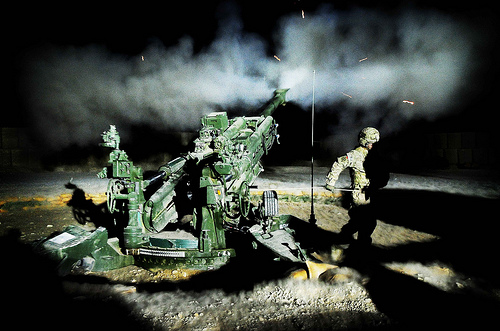
There is a different feel in the air, and it should not be surprising. As historic as was the re-election of President Obama, nothing can replace the uniqueness of the opening of his first term four years ago. The expectations; the history that was made; the level of excitement…it was all too impossible to replicate.
The November 2012 re-election of the president, nevertheless, was a remarkable feat. Taking place during a time of war and economic crisis against a very well-funded opponent, combined with the Republican use of voter suppression efforts in many states, victory was far from assured. The forces of irrationalism were blunted in their tracks, however, at least for the moment.
Yet, as we approach Inauguration there are important concerns. In the ‘fiscal cliff’ negotiations, President Obama, despite the public being on his side, once again displayed his tendency towards what I would call over-compromising, a reluctance to engage in hard-bargaining and a tendency to blink at the wrong time. Yes, things could have been worse, but that does not mean that they went well.
Beyond the fiscal cliff there are other issues facing us: climate change; turmoil in the Middle East; the continued war in Afghanistan, the threat of war with Iran; and, obviously, the economy. On each of these issues and more, we should not assume – in fact, we cannot assume – that President Obama will be on the right side. The drone strikes in Pakistan continue, for instance, and so too do the attacks on civil liberties at home.
The question, then, is, what should we expect over the next four years? The answer actually depends on us much more than it does on President Obama. In the fiscal cliff negotiations, we saw what happens without us: the wrong compromises are made in the name of bi-partisanship. The problem is that Obama cannot be bi-partisan if the other side is being fanatically partisan. Such attempts appear to be surrender rather than responsible diplomacy.
Thus, the real answer to what to expect over the next four years comes down to two very different and clear scenarios: One, in the absence of pressure, the administration will offer wonderful rhetoric as it continues to retreat, or, two, the administration will be compelled to shift gears and fulfill the mandate that it received from the decisive November election as a result of pressure that it receives from people like us.
In case you missed this, the administration can only be compelled through mass action. That means more than emails and phone calls, but instead public displays of protest – boots on the ground. In addition, when we have Republicans in Congress who, due to gerrymandering, have districts that are solidly Republican and, thus, they have little fear of any electoral challenge, the only thing that will shake them up is if society is a bit shaken.
One thing that we do not need is to find ourselves, four years from now, asking why we did not do more when we had the chance. If we miss the moment, we may not have additional chances.
Bill Fletcher, Jr. is a Senior Scholar with the Institute for Policy Studies, the immediate past president of TransAfrica Forum, and the author of “They’re Bankrupting Us” – And Twenty Other Myths about Unions. He can be reached at papaq54@hotmail.com.
